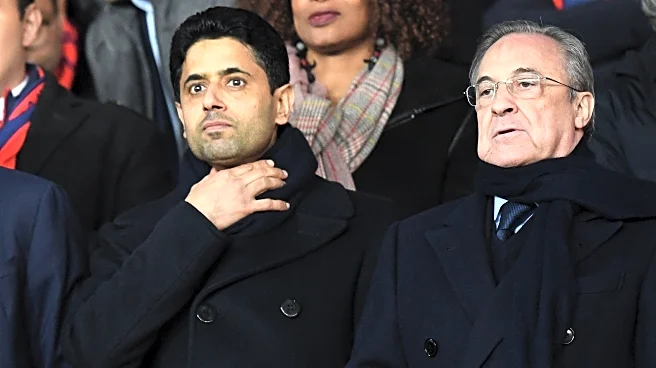What's Happening?
Chelsea's management has expressed full support for Enzo Maresca's team rotation policy, despite criticism following a 2-2 draw with Qarabag in the Champions League. Maresca made seven changes to the starting
lineup, a continuation of his recent strategy to manage player workload. This approach has led to Chelsea making more lineup changes than any other Premier League team this season. The club's hierarchy believes that this strategy will benefit the team in the long run, despite short-term challenges.
Why It's Important?
The backing of Chelsea's hierarchy for Maresca's rotation policy is significant as it reflects the club's strategic approach to player management and long-term performance. This decision impacts team stability and fan expectations, especially given the mixed results in recent matches. The rotation policy aims to mitigate player fatigue and injuries, which are crucial for maintaining competitive performance throughout the season. The support from the club's management indicates confidence in Maresca's leadership and strategic vision.
What's Next?
Chelsea is likely to continue with the rotation policy, focusing on optimizing player health and performance. The club will monitor the impact of this strategy on match outcomes and team dynamics. Fans and analysts will be watching closely to see if this approach leads to improved results in upcoming fixtures. The club's management may also evaluate the effectiveness of this policy in relation to player satisfaction and overall team morale.
Beyond the Headlines
The rotation policy raises questions about balancing short-term performance with long-term player health and team success. It highlights the challenges faced by clubs in managing large squads and the expectations of fans and stakeholders. This approach may influence other teams in the league to reconsider their strategies for player management and rotation.











